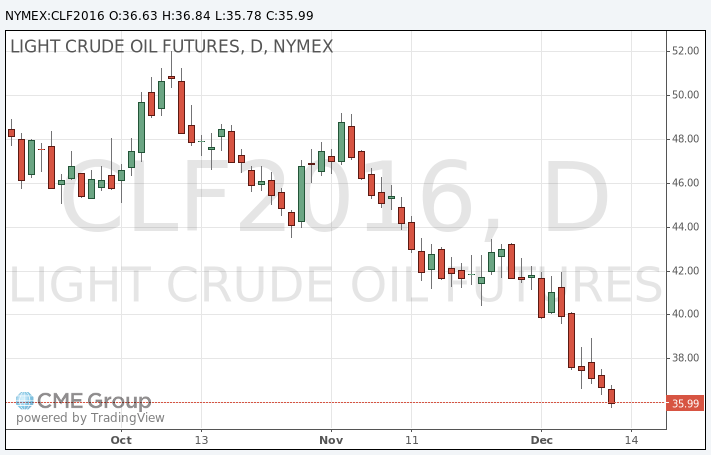- Oil prices slide as the International Energy Agency says that the global oil oversupply could rise next year
Market news
Oil prices slide as the International Energy Agency says that the global oil oversupply could rise next year
Oil prices continued to decline as the International Energy Agency (IEA) said that the global oil oversupply could rise next year.
"Consumption is likely to have peaked in the third quarter and demand growth is expected to slow to a still-healthy 1.2 mb/d in 2016, as support from sharply falling oil prices begins to fade," the IEA pointed out.
The IEA said in its monthly report on Friday that the low prices led to a lower supply from non-OPEC countries.
"Lower prices are clearly taking a toll on non-OPEC supply, with annual growth shrinking below 0.3 million barrels per day (bpd) in November from 2.2 million bpd at the start of the year," the agency noted.
The IEA expects the non-OPEC supply to fall 0.6 million bpd in 2016.
"As companies make further spending cuts in reaction to sub-$50/bbl oil, the impact on supplies - both from non-OPEC and OPEC - will be even more pronounced in the longer term," the agency.
WTI crude oil for January delivery slid to $35.78 a barrel on the New York Mercantile Exchange.
Brent crude oil for January dropped to $38.67 a barrel on ICE Futures Europe.
